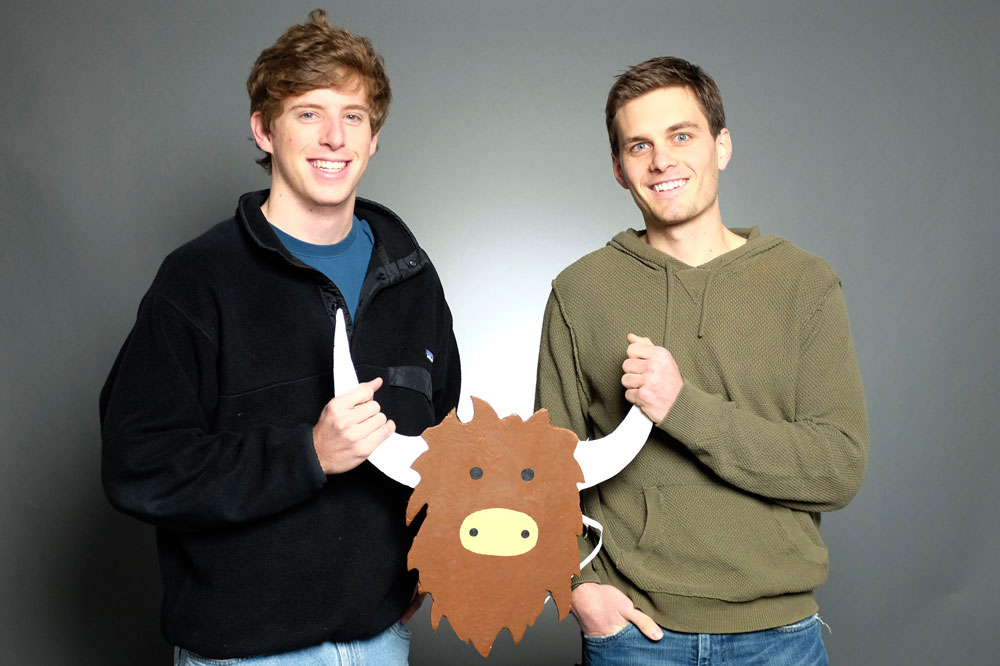
While it’s easy to just sit along for the ride that is college, there are some students who go above and beyond, past course syllabi and major requirements, and do something absolutely extraordinary. Such students are Tyler Droll and Brooks Buffington, the creative and administrative minds behind the popular hyperlocal messaging app Yik Yak. Since its launch less than a year ago, it’s taken college campuses across the country by storm.
Avoiding the tolls of post-graduation unemployment, Droll serves as the company’s CEO, focusing on product management, and Buffington serves as the company’s COO, managing product distribution and community growth.
It all started with an idea that sparked from an observation that the two Kappa Alpha fraternity brothers made during their time at Furman University (they graduated in 2013). They realized that there were a couple influential Twitter accounts on their campus being followed by thousands of students. Each Twitter account, as you can imagine, comes from the creative mind of one individual (or perhaps a small group). Figuring that there must be more than a few people with funny things to say, the two set out to create a platform whereby anyone can have a voice. That platform later became Yik Yak.
Buffington describes Yik Yak as a virtual bulletin board for your campus (or any hyperlocalized area), where anyone can post to the masses. You don’t have to have a Twitter account with thousands of followers to be heard, and you don’t have to expose your identity. It’s meant to be a safe place where thoughts and statements are protected by anonymity. You can say what you want, and not have to worry about the repercussions.
Anonymity, however, is a double-edged sword. While it opens up the public discourse to a wide array of topics and conversations that are often held for private quarters, it also opens the door for abuse. As one can imagine, the app initially broke out into high schools and middle schools across America like wildfire and, at that age, students were unable to handle the responsibility that comes with anonymity. However, due to its hyperlocalized nature, the Yik Yak team was able to block off the high schools and middle schools, restricting the use of the app in those locations. Yik Yak also has filters in place that scan posts for racism, sexism, homophobia and other forms of hate speech, as well as removing any posts containing the names of individuals.
“It’s a partnership between us and the communities, they need to police themselves,” Droll said. “Then there’s our responsibility to have filters running, we’re always making sure that being anonymous doesn’t get out of control.”
The road to Yik Yak wasn’t a simple one. Failures had to be endured. While attending Furman, Droll was studying information technology while pursuing a pre-med track and Buffington was studying accounting. Neither major prepared them for app development. Nevertheless, they began working on a social Q-and-A app which would they would call Dicho. It would eventually be shut down, and chalked up to a failure, Dicho sparked an interest in the two. It kindled their passion for creating apps, and served as a fundamental learning experience to their development of Yik Yak. By the time they graduated in 2013 and began working on Yik Yak, Droll and Buffington had sharpened their skills. More often than not, it’ll take learning from failures to reach your success.
They first showed Yik Yak to their old classmates still attending Furman. For honest feedback, they didn’t reveal that the app was of their own creation, crediting it instead to students from Harvard. Needless to say, the app was received very well, and has now spread nationally, with some international exposure. If there is a lesson to be learned from Yik Yak, it’s the power of one good idea, and the necessary trials to endure in order to execute that very idea into a viable product that people want.
“Start simple with your idea, don’t make it too complicated to start,” Buffington said. “You can add on later, its hard to take away things. If you want honest feedback, don’t tell people that you made it.”


